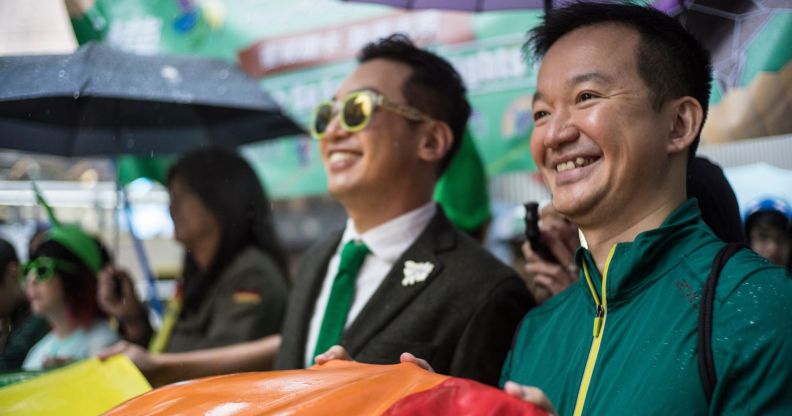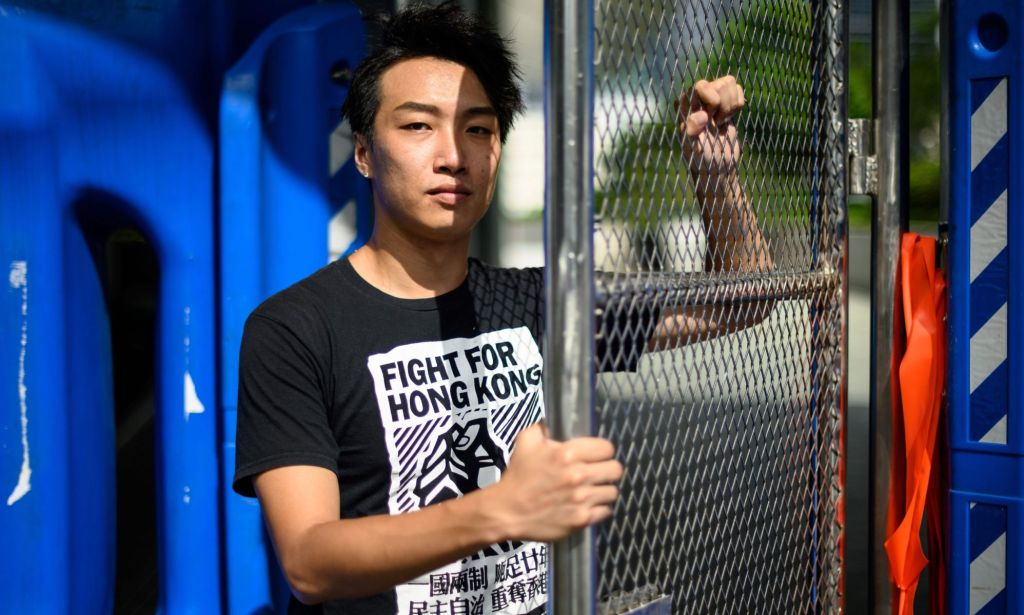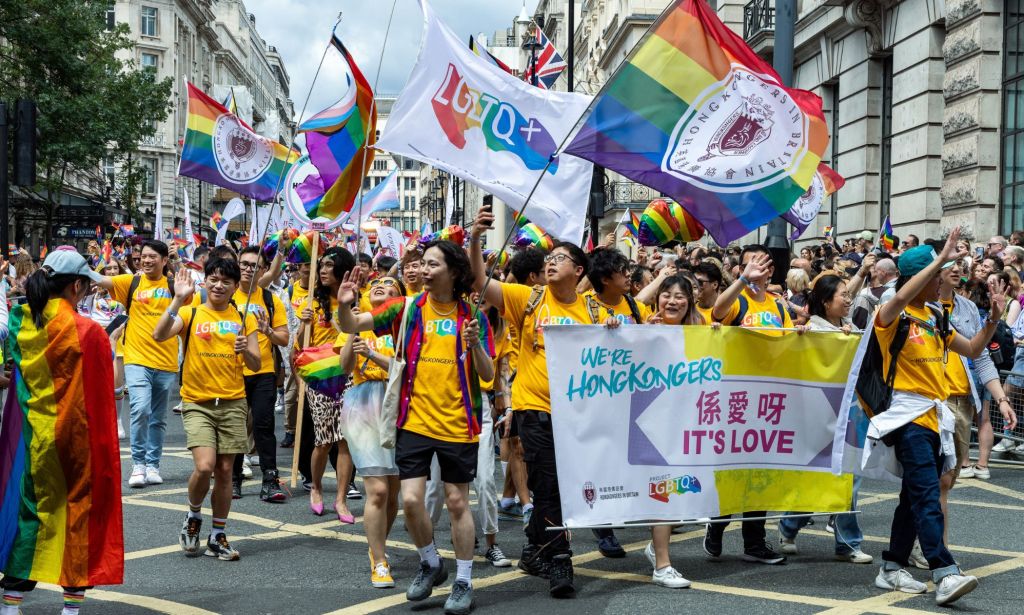Hong Kong government ordered to recognise same-sex partnerships

Hong Kong’s top court ordered the government to recognise same-sex partnerships in a “significant victory” for LGBTQ+ rights, but the ruling doesn’t bring full recognition of same-sex marriage. (Getty)
Hong Kong’s top court has ordered the country’s government to legally recognise same-sex relationships, but stopped short of demands for full marriage equality.
Five judges on the Court of Final Appeal ruled on Tuesday (5 September) that Hong Kong’s government was failing to fulfil its constitutional duty to provide an alternative system for legal recognition of same-sex partnerships.
This is the first time the court has directly addressed same-sex marriage.
In its judgement, the court ruled that LGBTQ+ couples needed to have a “sense of legitimacy which dispels any sense of them belonging to an inferior class of person whose committed and stable relationships are undeserving of recognition”.
The government, which has shown little appetite for championing LGBTQ+ rights, was given two years to enact a scheme. However, the court unanimously dismissed an appeal in relation to bringing forward full marriage equality and recognition of same-sex marriages performed abroad.
Homosexuality was decriminalised in Hong Kong in 1991, and legal challenges have pushed the government to make improvements in terms of rights for LGBTQ+ people in general, and for same-sex couples.
Jimmy Sham Tsz-kit’s five-year legal battle
Jimmy Sham Tsz-kit has been in custody awaiting trial since March 2020 under a Beijing-imposed national security law, following anti-government protests in the former British colony. The law has been used to arrest and silence many pro-democracy activists as part of a crackdown on dissent.

Sham, who married his husband in New York a decade ago, first asked for a judicial review in 2018, to force the “special administrative region of China” to recognise overseas same-sex marriage. He argued that the city’s current ban violated his right to equality and is therefore unconstitutional.
Lower courts dismissed previous challenges in September 2020 and August 2022 before Sham was granted permission to take his case to the top court in November.
At a hearing in June, the Court of Appeal heard that the absence of same-sex marriage in Hong Kong sends a message that it’s “less worthy” than marriages between cis, heterosexual couples.
‘A victory for the community likely to result in real change’
Barrister Azan Marwah, who is the legal advisor of Hong Kong Marriage Equality, told the Hong Kong Free Press that the court’s ruling wasn’t a “full victory”, but represents a “significant step forward” for the LGBTQ+ community.
“It is not a victory for the appellant, but it is a victory for the community and it is one that is likely to result in real change,” he said.
Marwah added that the easiest path forward for the government was to “provide same-sex marriage in substance” by amending existing laws to mirror legislation in other countries such as England, which he described as “comprehensive and sensible”.
Esther Leung, the campaign manager of Hong Kong Marriage Equality, said: “It is a significant victory which makes clear that Hong Kong law must afford due respect and protections to same-sex couples. This will help families while hurting no one.”
However, she added that the ruling “falls short of what is really at stake in this case: full inclusion in marriage”.

In Asia, only Nepal and Taiwan recognise same-sex marriages while India’s Supreme Court is currently debating whether to allow such unions.
Lawmakers in South Korea recently introduced legislation that would recognise same-sex marriages after the country faced legal challenges on the rights of queer couples.
Human rights lawyer Wong Hiu-chong told AFP that the Hong Kong court’s decision was an “important move towards the protection of LGBT rights” but felt the two-year timeline for change to take place was a bit long.
“We hope the administration will adhere to such a generous time frame and not procrastinate,” she said.
How did this story make you feel?

